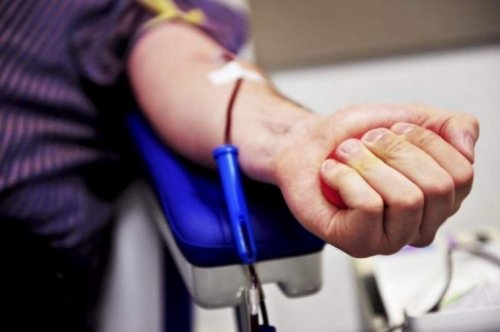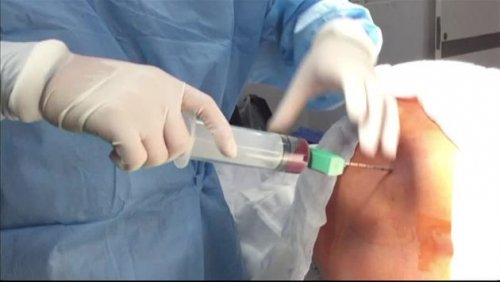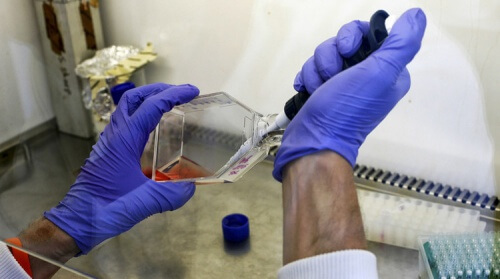How to Become a Bone Marrow Donor


Reviewed and approved by the doctor José Gerardo Rosciano Paganelli
Every year the number of people who suffer from blood diseases goes up. Unfortunately, experts estimate that this number will keep growing considerably. Diseases like leukemia, aplastic anemia, lymphoma, and immune deficiencies respond well to treatments involving a HSCT. This is more commonly known as a bone marrow transplant.
However, there is a problem. In the United States, for example, a patient only has between a 25% to 30% chance to find a compatible donor in their family.
Therefore, most are left waiting to find a donor.
Fortunately, the number of volunteers is also rising. It’s estimated that there are already more than 22 million people registered as bone marrow donors in 48 countries.
However, the thing is that bone marrow donors need to be 100% compatible with the patient. According to the experts, this only happens for one person in forty thousand.
That’s why it’s extremely important that more people donate bone marrow.
Today, we’re going to take a look at how you can become a donor.
What is bone marrow?
Bone marrow is a spongy tissue found inside some of the bones in your body. Its main function is making red blood cells.
This marrow also contains stem cells. These cells have a very important function in other body tissues.
What do bone marrow transplants consist of?

Donating bone marrow is a process in which a small amount of marrow blood is extracted. This blood comes from the back side of your hip bone.
With a small needle, general anesthetic or an epidural, doctors can extract what they need in a specialized hospital.
The procedure doesn’t cause any side effects for the donor. This is because bone marrow has the ability to completely regenerate.
Also, if the transplant is successful, the patient has the possibility of regenerating all of their bone marrow cells.
Does the donation have any risk?
The donation itself doesn’t carry any specific risk. However, there are some people who use a topical anesthetic.
After donating, you might feel a little pain where the marrow was extracted. But this generally disappears after a few days.
Who can donate?

The process to become a bone marrow donor is usually simple. But there are some requirements:
- You should be in good shape and be between 18 and 55 years old.
- Donors have to weigh at least 110 lbs.
- You must complete paperwork with the relevant information and donate a unit of blood.
- Donors must not have diseases that can be transferred through blood.
- You must not have had any surgeries, tattoos, piercings, or invasive procedures done in the last year.
- Donors must not have had risky sexual relationships.
- You must not have had fever, diarrhea, or vomiting in the last 10 days before donating.
- Donors must not take drugs.
- You must not eat solid foods for the 5 hours leading up to the procedure.
What does it mean to be a bone marrow donor?
Bone marrow donations are voluntary and altruistic. This is how it is all over the world.
Its ruled by the principle of international solidarity. Any donor can help any person in the world as long as they are compatible.
In Spain alone, they have diagnosed more than 5,000 new cases of leukemia per year. Of those patients, 3 out of 4 people don’t have a familial match.
Becoming a donor is the only possible cure for hundreds of people who need help.
This is a personal decision that can help save lives. Donating can help people who have leukemia and other blood diseases.
Are donors compensated?

The specialized medical centers and supporting foundations cover the costs required for the donation.
Read also:
5 Easy Ways to Feel Better
Can I take myself off of the registry?
Donors have the liberty to remove themselves from the registry any time they wish. This is because personal and physical circumstances always change with time.
However, we recommend thinking thoroughly about all possibilities before going through the registration process. This is because they don’t want the donor to change their mind if they can save the life of another person.
Are you interested? If you’ve decided to become a donor, contact a specialized center near you. And be sure to share this information.
Don’t forget, you have the possibility to help save lives.
All cited sources were thoroughly reviewed by our team to ensure their quality, reliability, currency, and validity. The bibliography of this article was considered reliable and of academic or scientific accuracy.
- Fundación Josep Carreras, Guía del donante de médula ósea, s.f. https://www.fcarreras.org/es/guia-del-donante-de-medula-osea_4792.pdf
- Organización Mundial de la Salud, PRINCIPIOS RECTORES DE LA OMS SOBRE TRASPLANTE DE CÉLULAS, TEJIDOS Y ÓRGANOS HUMANOS, aprobados en mayo de 2010. s.f. https://www.who.int/transplantation/TxGP%2008-sp.pdf
- Organización Nacional de Trasplantes, “Donación de Médula ósea. Preguntas frecuentes”, s.f. http://medulaosea.ont.es/informacion/preguntas-y-respuestas/
This text is provided for informational purposes only and does not replace consultation with a professional. If in doubt, consult your specialist.








